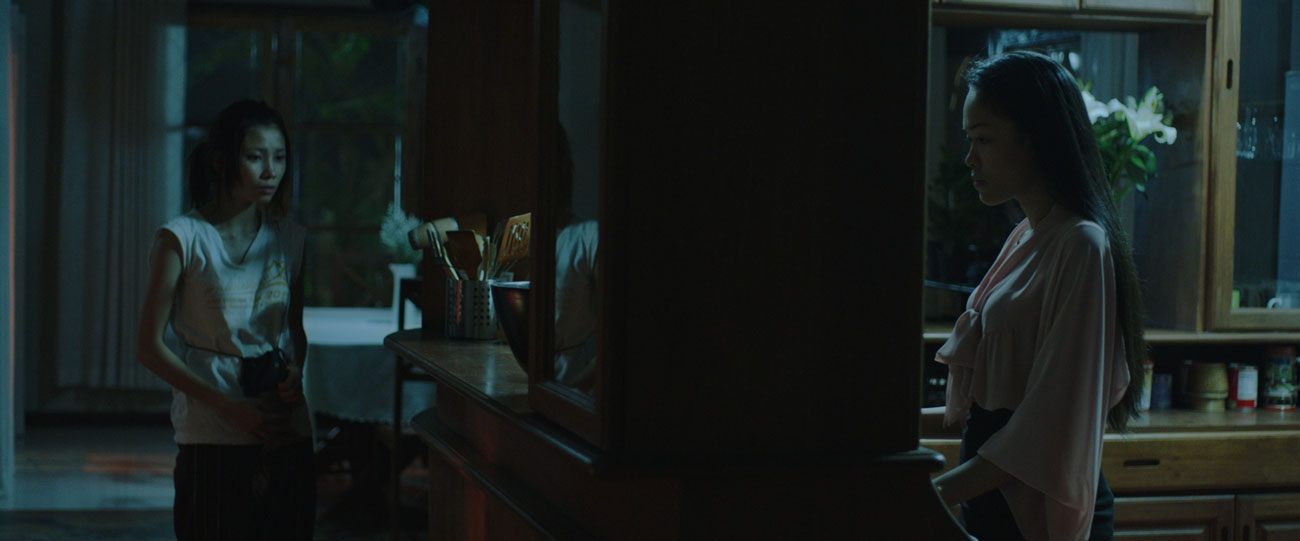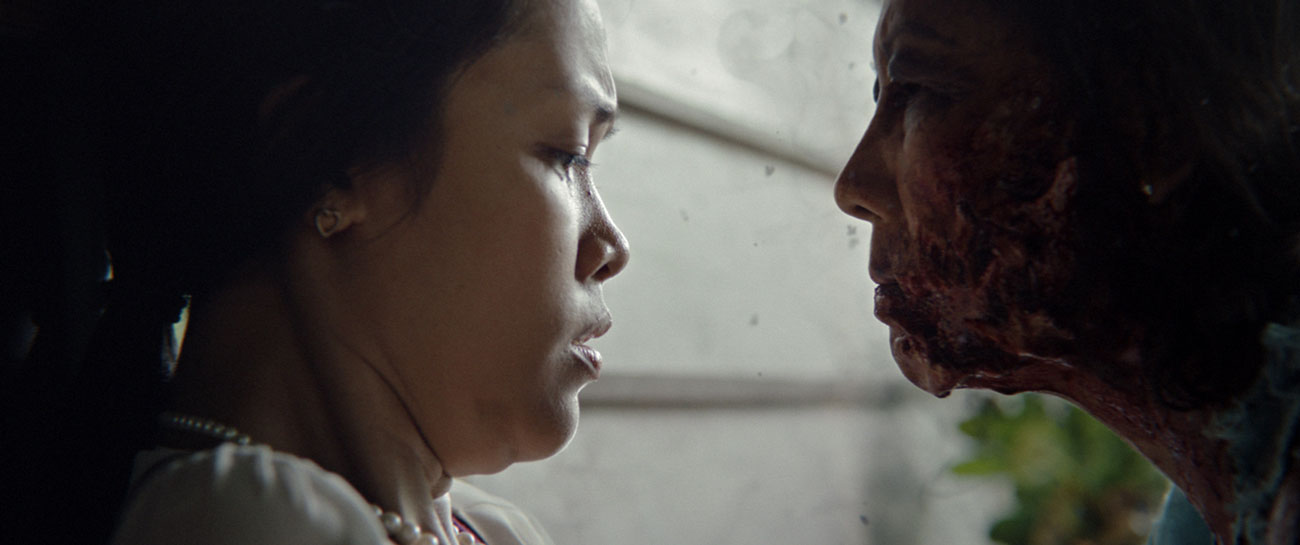Mattie Do is Laos’ only horror filmmaker and she is also the country’s only female director. These are tremendous achievements and her follow-up to her 2013 debut feature, Chanthaly is her second feature film, the slow burner horror Dearest Sister. The film is a triumph of scare and creep devoid of ghosts and demons of any real traditional substance. There are connections with some other world entities but they are benign and almost secondary. The real horror comes from the sharp study of human emotion. The horror of greed. The abomination of righteousness. The voracity of indulgence. They are all too compelling and frightening.
When one has a distorted view of what is owed to them — what they deserve and what they demand — their merit becomes twisted and they start to take what rightfully belongs to them; what they feel they have earned. It is this mindset that can be truly frightening and Dearest Sister nails it, sometimes with disbelief, sometimes with dismay and often with that fascination of the train wreck unfolding in slow motion, right before your unblinking eyes. Little acts of deceit and betrayal grow and bloom becoming larger than the individual.

We start the film following Nok, a young peasant girl who leaves her village life to join her cousin Ana’s household in Vientiane, the Laotian capital. Here, she will help Ana adapt to her new life as she slowly loses her sight. The two women have never met before but the cousin is married to a wealthy expat and she leads a luxurious life that initially amazes Nok.
The household is the setting for a four-way culture clash. The Euro sensibilities of the husband, the wealthy Laotian in Ana and her friends, the village peasant of Nok and the lower class of the domestic workers. There are simmering tensions as they all work together and yet all work against each other with Ana and her sight loss as the central focus. It’s original and fresh and a great way to reveal all the faults and foibles of the different social strata. Mattie Do doesn’t rely on big prop scares and screams to get under your skin — she moves in a much more subtle and sophisticated manner which allows Dearest Sister to unnerve insipidly, despite the seemingly low budget (some $40,000 USD was raised via a crowdfunding campaign; what a mighty fine reward for the original backers).

Village wisdom talks of gaining a new sense when there is a loss of another and in Ana’s case, she has gained a clairvoyance that allows her to connect with otherworldly entities. Whilst most think she is going mad, it is the village wisdom of Nok that recognises what is happening to Ana and to Ana’s relief, Nok is able to help her. But Nok is not all simplicity and country naivety. She, like all the others has her own agenda to pursue.
The shooting style of tight close-ups and shots jumping around the scene and settings help to maintain a good level of tension and edge. When mixed with Ana’s POV shots of her failing eyesight and the production value in art direction and lighting, these components indicate a director who is very much in command of her visual language and is speaking articulately and with authority. This is also very much reflected in the two leading women (Amphaiphun Phommapanya and Vilouna Phetmany) who both own their roles with a confidence of good acting and good directing. Coming from a country that has no real film industry and only one cinema, Dearest Sister is yet another remarkable achievement for Mattie Do.
Dearest Sister will screen at Monster Fest 2016 in Melbourne’s Lido Cinemas in Hawthorn. Short film I am Jupiter, I am the Biggest Planet by Melbourne filmmaker, Matthew Victor Pastor will screen alongside Do’s horror feature. Both Mattie Do and Matthew Victor Pastor will be in attendance for a Q&A following both films.
Dearest Sister will also screen at Singapore International Film Festival 2016.
